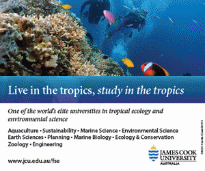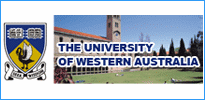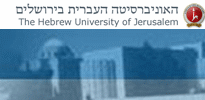Hong Kong: Hong Kong Education Profile 2012
2012/03/13
Hong Kong Education Profile 2012
Education in Hong Kong has a similar system to that of the United Kingdom, in particular the English education system of Hong Kong was modernized by the British in 1861. The system can be described as extremely competitive by global standards.
Contents
History
Prior to 1841, the territory we know today as Hong Kong was an extension of Imperial China for many centuries. Village schools were the main form of institutions in the territory, and schools were part of the Imperial China's educational system. These schools essentially had a single teacher who returned to mainland China during fishing season. Some of these schools existed in areas like Chek Chu, Shek Pai Wan, Heung Kong Tsai and Wong Nai Chong[1]. One of the earliest schools with reliable records was Li Ying College established in 1075 in present day New Territories. By 1860 Hong Kong had 20 village schools. Chinese who were wealthy did not educate their children in Hong Kong, instead they sent them back to the mainland for traditional Chinese education. The changes would come with the arrival of the British colonialization in 1841.
At first Hong Kong's education came from Protestant and Catholic missionaries who provided social services. Italian missionaries began to provide boy-only education to British and Chinese youth in 1843. By 1861 Frederick Stewart would become "The Founder of Hong Kong Education" for integrating a modern western-style education model into the Colonial Hong Kong school system. One of the much contested debate was whether schools should offer Vernacular education, teaching in Chinese at all. Education was considered a luxury for the elite and the rich. The first school to open the floodgate of western medical practice to the Far East was the Hong Kong College of Medicine for Chinese in 1887.[he push for Chinese education in a British system did not begin until the rise of social awareness of the May 4th Movement in 1919 and New Life Movement in 1934. Educating the poor did not became a priority until they accounted for the majority of the population..
Finance issues were addressed in the 1970s. A small group of protesters of South Asian origin marched through central Hong Kong demanding more schooling in the English language on June 3, 2007
Format
Following the introduction of the comprehensive school system in the 1960s in the UK, children in Hong Kong transformed from the old education system to the new[6][8]. Education listed as compulsory below are generally required by law.
School Systems
Culture
The mainstream education system in Hong Kong has often been described as "spoon-fed" (Chinese: 填鴨式教育). Students' survival in the system is essentially placed on heavy rote learning, which is sometimes better suited for exams than for pro-active learning. Cram schools in Hong Kong have also become a popular standard in parallel to regular education. A heavy emphasis is placed on the Ranking systems at an early age. Competition among students are fierce, since job and advanced-school placements are rigorously filtered by rank results.
Practically all school students in Hong Kong wear uniforms. Common restrictions include strict dress codes, behaviours, and what items one can carry to school. Most schools are entitled to search a student's belongings without any rationales.
Point system
Schools in Hong Kong typically have strict codes of discipline. An overwhelming majority of schools employ "Demerit Points System" (Chinese: 記缺點制度) as a formal record of student offences in disciplinary areas. These statistics will appear on a student's report card, and sometimes testimonials on whether he or she can graduate. A typical example of a current institution using a demerit point system is Shatin Tsung Tsin Secondary School. Most schools will record demerit points (Chinese: 記缺點) at the most basic violation. The typical point deduction accrue from a minor offence (Chinese: 記小過), while 3 minor offences mount up to 1 major offence (Chinese: 記大過). Once a student has accrued 3 or more major offences, he or she is automatically suspended (or expelled if over compulsory education age) from school. The point system has been known to carry substantial weight, which ultimately affects one's report card performance, and controversially jeopardizing future career prospects
Discipline
There is a large discrepancy as to what behaviours are tolerated between different schools. Most schools would take note of theft, assault, or triad activities, while some schools are sensitive to more minor violations. There are also cases of teachers abusing their powers of giving out demerit points based on incompatibilities with individuals. Over time, strict reputations often get associated with schools. For example, graduation at Carmel Pak U Secondary School is semi-jokingly refer to as a release from prison (standard Chinese: 出獄; Cantonese slang: 出冊). Currently, the Education and Manpower Bureau is powerless against teachers that exercise dominance-type authority. Unlike corporal punishments, the acts are not technically illegal, but rather unethical and overlooked. Common punishments include detentions and/or copying text passages from an unrealistic number of time.
Capacity
Many primary schools in Hong Kong offer half-day schooling, splitting by AM and PM to handle the demand. The two sessions are usually treated as separate school entities with 2 different headmasters and different sets of staff. To make up for the time of shortened half days, students are sometimes required to attend alternate Saturdays. Most primary schools are gradually moving to full school day systems as government policy aims to phase out half-day schooling over time as resource permits.
Due to the drop in birth rate in recent years, many primary schools were forced to cut classes, cut teachers and even close down. There have been debates that one should seize the opportunity to promote small class teaching. Doing so could mitigate the pressure of teachers, class and school reductions, on top of improving ratio of students to teachers.
Qualifications: Professional teacher preparations
The Hong Kong Institute of Education (HKIEd), under the aegis of the University Grants Committee (UGC), aims at upgrading the quality of teaching professionals. It offers a range of degree and postgraduate programmes as well as some sub-degree teacher education programmes targeted at pre-primary, primary and secondary levels. The Chinese University of Hong Kong (CUHK) and The University of Hong Kong (HKU) offer full-time and part-time degree and postgraduate programmes for in-service and pre-service teachers. The Hong Kong Baptist University (HKBU) also offers both undergraduate and postgraduate teacher education programmes on a full-time or part-time basis. The Open University of Hong Kong (OUHK) offers two in-service Bachelor of Education (Honours) degree programmes and two in-service Postgraduate Diploma in Education programmes for primary and secondary school teachers.
Qualifications: Professional principals developments
Starting in 2002/03, all serving principals have to undertake continuing professional development activities for about 50 hours per year, adding up to a minimum of 150 hours in a 3-year cycle. Newly appointed principals in their first two years are required to undertake specific continuing professional development activities. Starting from the 2004/05 school year, aspiring principals will have to attain the "Certification for Principalship".
Early Education
Pre-school / Nursery / Kindergarten Education
Before Christmas season in 2006, the Legislative Council's finance committee in Hong Kong approved the controversial HK$2 billion pre-school scheme to subsidize early childhood education and to ease the burden of raising children in HK. Under the subsidy plan, parents whose children study in kindergarten will get an education voucher of HK$13,000 per student per year from the 2007-2008 school year, provided the school fees did not exceed HK$24,000 per year for half-day kindergartens or HK$48,000 for whole-day kindergartens.
Primary Education
Primary education in Hong Kong covers a wide curriculum. Core subjects include Chinese, English, and Mathematics with broad emphasis on Music, Physical Education and Arts. Formerly there were 3 knowledge-oriented subjects: Social Studies, Health Education, and Science. In the 1996-1997 academic year the Education Department amalgamated these subjects into the new subject of General Studies[citation needed]. Depending on the religious background of the school, Religious Education or Bible Studies could be incorporated. The teaching medium in most of the local primary schools is Chinese with English as a second language. After the transfer of the sovereignty of Hong Kong in 1997, only a handful of primary schools and secondary schools are able to keep English as the medium of instruction under new government policies. Those schools are generally referred to as English as Medium of Instruction schools (EMI).
Secondary Education
Secondary education in Hong Kong is largely based on the English schooling system, with single-sex education being widespread. In Form 4, most students of grammar schools are required to choose between streams, namely "Science", "Arts" and "Commerce", depending on the school policy. The end of Form 5 leads to the Hong Kong Certificate of Education Examination (HKCEE). The exam is equivalent to the UK's GCSEs or O-levels exams.
Students obtaining a satisfactory grade in the HKCEE will be promoted to Form 6. The Hong Kong Advanced Level Examination (HKALE) then acts as the de facto university entrance examination akin to the UK's GCE A-levels. At this level streaming is even more rigidly specialized dividing into Mathematics/Engineering stream, Biology/Medical stream or Arts stream for example.
Prerequisites for university admissions include Grade "E" or better in the HKALE Chinese Language and Culture and Use of English subjects. The Joint University Programmes Admissions System (JUPAS) determines admission to tertiary institutions largely based on HKALE results. In addition, students achieving more than 6 'A's in their HKCEEs are eligible to apply for early admissions through the Early Admissions Scheme (EAS) including The Chinese University of Hong Kong (CUHK), The University of Hong Kong (HKU) and The Hong Kong University of Science and Technology (HKUST).
Tertiary Education
With 8 universities and several other tertiary institutions in just one city, tertiary education plays a key role in the education system. Of the 36,660 students who attended the HKALE in 2003, 18,049 (49.2%) of them fulfilled their general entry requirement to their respective university, usually a pass in Chinese Language and Culture and Use of English, plus another two A-level subjects (or one A-level subject and two AS-level subjects). Students who sit for the HKALE first time have a success rate of 75.8%. There are 19 different Advanced Level and 20 different AS-level subjects available. The cost of undergraduate, full-degree, full-time programmes tend to be around HK$40,000 - 50,000 a year, with the cost being higher for engineering and medical students. The reason for this relatively low cost is due to heavy government subsidisation. Being an international city, Hong Kong's tertiary institutions attract many foreign exchange students from US, UK, Switzerland, Canada, Italy, Singapore to name a few.
Vocational and Post-secondary Education
Commerce stream in secondary schools are considered vocational in nature. Students in the Commerce stream would usually enter the workplace to gain practical work experience by this point. Further education pursuit in Hong Kong Institute of Vocational Education or universities abroad are common. The Manpower Development Committee (MDC) advices the government on coordination, regulation and promotion of the sector. In addition, the Vocational Training Council (VTC) ensures the level of standard is met through the "Apprentice Ordinance". The VTC also operate three skills-centres for people with disabilities.
International Education
International institutions like German Swiss International School and French International School continue to teach with English as the primary language. International school students rarely take Hong Kong public exams. British students take GCSE, IGCSE and A-levels. US students take SATs. Other international student follow International Baccalaureate policies, and enter universities through non-JUPAS direct entry. International students apply on a per school basis, whereas Hong Kong local students have the advantage of submitting 1 application for multiple local universities as a JUPAS applicant.
Non-Mainstream Education
Adult education
Adult education is popular, since it gives middle-aged adults a chance to obtain a tertiary degree. The concept was not common several decades ago. The EMB has commissioned two non-profit school operators to provide evening courses. Both operators have set up fee remission schemes to help the adult learners in need of financial assistance. Adult education courses also provide Vocational Training Council through various universities and private institutions. The Open University of Hong Kong is one establishment for mature students.
Education for newly-arrived-children (NAC)
The EMB provides education services for newly arrived children, which includes children from the Mainland, non-Chinese speaking children and returnees. Free "Induction Programmes" of up to 60 hours have been offered to NAC by non-government organisations. The EMB also provides a 6 month full-time "Initiation Programme" incorporating both academic and non-academic support services, for NAC before they are formally placed into mainstream schools. Hei-Hang Hayes Tang (2002) provided a good sociology of education thesis on the NACs' adaptation and school performance
Standings
In the OECD's international assessment of student performance, Hong Kong has been ranked one of the highest scorers in 2003 and 2006. In 2003, 15-year-olds from Hong Kong came first in mathematics, and third in science, worldwide.
Criticism
With the advent of education reform there is a greater emphasis on group projects, open-ended assignments on top of traditional homework. The current workload of a primary student in Hong Kong includes approximately 3 to 4 hours of schoolwork nightly. Along with extracurricular activities, Hong Kong's education has become synonymous for leaning towards quantity. As early as March 1987, education advisory inspectors became concerned with the excessive amounts of "mechanical work and meaningless homework". In particular, history education has been recognized as ineffective, with critics claiming that the curriculum is not capable of delivering a sense of identity
Some have criticized the system for having too narrow of a stream focus, too early on. Alan Leong of the Hong Kong Legislative Council pointed out in a guest lecture to CUHK students that science stream education at secondary level, are incapable of participating in meaningful discussions on history, arts, or literature. Vice versa journalists of Arts stream background are incapable of accurately discussing technological issues. The narrow focus has been a concern.
Future
At the time of writing March 2007, a new Senior Secondary School curriculum has been promulgated. Secondary education will move away from the English model of five years secondary schooling plus two years of university matriculation to the Chinese model of three years of junior secondary plus another three years of senior secondary, with the Form 1 intake in the 2006-07 academic year the first crop to graduate under the new system. Streaming of classes according to subjects offered will be abolished, and the two public exams HKCEE and HKALE will be merged into one public exam, called the Hong Kong Diploma in Secondary Education, sat at the end of the Senior Secondary 3 (Form 6 under the existing system), and expanding school based assessment. University education will extend from three years to four.
Medical school
- Hong Kong News
-
- HONG KONG: Hong Kong Airlines is 'The Best Place to Work in Hong Kong' in 2016
- CHINA: Asian Shares Fall Amid Lack Of Triggers
- CHINA: Asian Markets Retreat After Oil Prices Fall Again
- AFGHANISTAN: Global growth will be disappointing in 2016: IMF's Lagarde
- HONG KONG: Gold price closes down in Hong Kong
- BRUNEI : APEC economies growth slows to 3.1 pct in Q2
- Trending Articles
-
- KENYA: Kenya’s retail sector on the rise
- CASABLANCA: Morocco set to approve 10 Islamic banks before the end of 2016
- SRI LANKA: Sri Lanka’s drive to improve public transport
- KENYA: Kenya's tea industry moves toward strategic diversification
- CANADA: Tech product tariff eliminated by Canadian international trade minister
- EGYPT: Egypt's micro-credit NGO lifting women out of poverty




.gif?1356023993)






